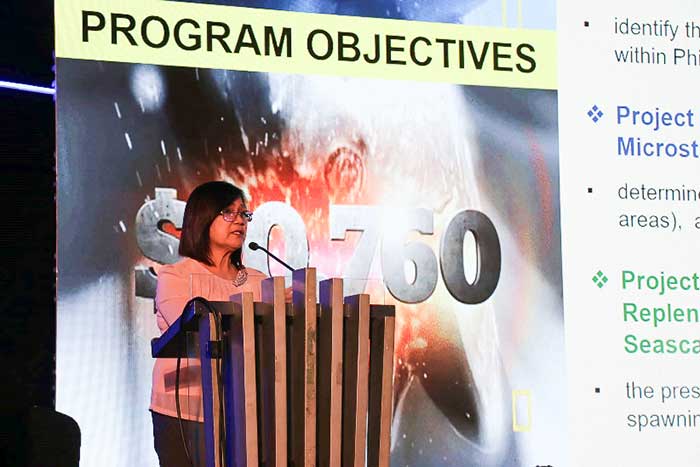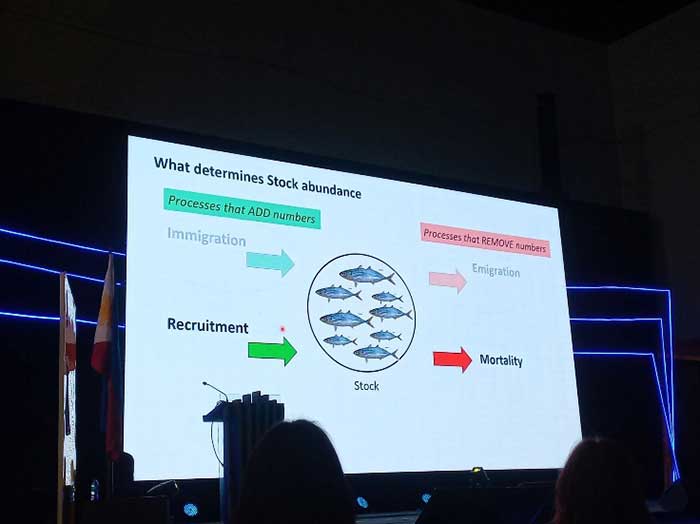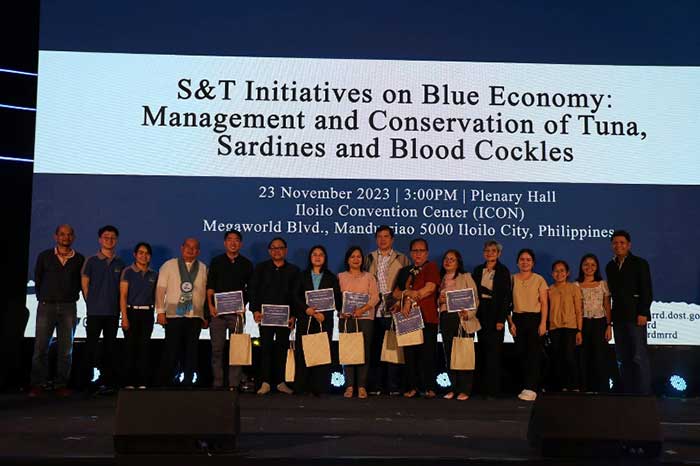Science and Technology (S&T) initiatives on management and conservation of tuna, sardines, and blood cockles were discussed through a technology forum during the second day of the 2023 National Science, Technology, and Innovation Week (NSTW) in Iloilo City.
Dr. Edna P. Guevarra of the Mindanao State University-General Santos City (MSU GenSan) presented the paper “Unlocking the Blue Economy: Insights of Study on the Reproductive Biology, Dietary Analysis, and Life-History of Philippine Tuna Species for Sustainable Fisheries in Southern Philippines,” which focused on understanding the reproductive biology, dietary habits, appropriate size of tuna for harvest and population dynamics of neritic tuna species.
Neritic tuna species are found in the water column over the continental shelf, which is a shallow part of the sea, and they are smaller compared to the oceanic tuna species.
According to Dr. Guevarra, it is very important to study these tuna species to protect and conserve for a sustainable use of our resources.
This was followed by a video presentation on “The Biology of Sardines and its relevance to managing their fisheries” by Dr. Wilfredo L. Campos of the University of the Philippines Visayas (UPV). He shared the findings of the ongoing program such as the status of the sardine fisheries in the Philippines, stages in fishery development, life cycle of sardines, and the effects of sardine overfishing.
According to Dr. Campos overfishing directly affects stock abundance, life cycle, size, health, and quality of sardines. He also highlighted the importance of fisheries monitoring and that there is not enough effort on this and biological studies are also needed to understand the health of stock, reproductive capacity of stock, impact of early juveniles, trophic modeling, Ecosystem Approach to Fisheries Management (EAFM), and other studies in managing fisheries.
Lastly, Dr. Victor Marco Emmanuel Ferriols of UPV presented the results of his ongoing project “Developing sustainable aquaculture strategies for the blood cockle (Tegillarca granosa) in the Philippines.” This study aims to generate a comprehensive data on spawning patterns, developed protocols for hatchery to enable technology refinement and preliminary data on sea-ranching feasibility of blood cockles.
Blood cockle, locally known as ‘litob’ or ‘bakalan’, is a type of mollusk that can be identified through their shell characteristics which is reddish flesh due to the presence of red blood pigment or hemoglobin. It is also the 7th major aquaculture mollusk species in the world based on The State of World Fisheries and Aquaculture 2022 of the Food and Agriculture Organization.
Dr. Ferriols also shared the highlights of the ongoing study such as mapping and characterization of the natural blood cockle habitat in three identified sites; analysis of the reproductive cycle of the blood cockles from Batan, Aklan and Zarraga, Iloilo; successful induced spawning of blood cockles through temperature and combined temperature-salinity shock; research on the effects of gamete ratio temperature, and salinity on blood cockle larval development and survival; initial testing of techniques in blood cockle larval and spat rearing; and the assistance in the establishment of a commercial blood cockle hatchery in Kalibo, Aklan supported by Korea International Cooperation Agency (KOICA).
The Philippine Council for Agriculture, Aquatic and Natural Resources Research and Development of the Department of Science and Technology (DOST-PCAARRD) funded and monitored the three studies presented. (Hannah May B. Odemer, DOST-PCAARRD S&T Media Services)
























